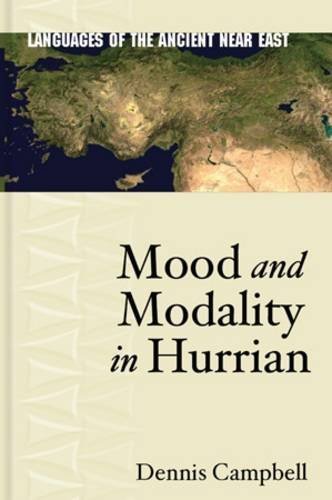

Most ebook files are in PDF format, so you can easily read them using various software such as Foxit Reader or directly on the Google Chrome browser.
Some ebook files are released by publishers in other formats such as .awz, .mobi, .epub, .fb2, etc. You may need to install specific software to read these formats on mobile/PC, such as Calibre.
Please read the tutorial at this link: https://ebookbell.com/faq
We offer FREE conversion to the popular formats you request; however, this may take some time. Therefore, right after payment, please email us, and we will try to provide the service as quickly as possible.
For some exceptional file formats or broken links (if any), please refrain from opening any disputes. Instead, email us first, and we will try to assist within a maximum of 6 hours.
EbookBell Team

4.1
90 reviewsIn a long dead language isolate such as Hurrian, grammatical studies are replete with difficulties. The paucity of material and our inability to compare it to modern, well-documented languages typically results in more questions than answers. Many posited answers to these questions lead inevitably to dead ends. Studies in languages such as Hurrian run the risk of either stagnating due to an adherence to the status quo by scholars or fragmenting when no two scholars can (or will) agree on any point. In this book, Campbell has in many ways broken with tradition in an attempt to go beneath the surface and reveal further complexities in Hurrian grammar. This work, the first English language monograph on Hurrian since 1941, is not a dogmatic treatise meant to counter the status quo but an exploration of the complexities of the Hurrian language from a new perspective. His conclusions may challenge present perceptions, but the hope is that they will in turn inspire challenges, for it is only in this way that our understanding of this wonderful language and the people who spoke it can be furthered.
Mood and Modality in Hurrian provides a formal and functional analysis of the Hurrian modal morphemes. Unlike the better-known Semitic and Indo-European languages of the ancient Near East, Hurrian has a rich complement of modal endings. This at-times bewildering variety in form and function of modal morphemes in Hurrian has been a largely unstudied topic. Although it has been touched upon in a number of studies, it has not received a detailed treatment until now. The present work will be seen by some as a potentially radical departure from standard understandings of the way these endings work, but this is not the intent. No systematic treatment of these morphemes has been attempted, and because of this, certain thoughts (and assumptions) on form and function have grown from tentative postulations to grammatical certainties over the years. And although some of these suppositions have borne the test of time, many others were in need of major revision. Campbell s conclusions represent a major shift in the way that we understand these modal forms and make his work important reading for Semitists and Indo-Europeanists alike.
Beyond a philological treatment of a dead language, Campbell also adds to the accumulated knowledge of ergativity. Hurrian is a highly ergative language, and this book explores the interplay between ergativity and modality in the language. Issues such as split-ergativity are explored in detail. Furthermore, Campbell explores the issue of voice in Hurrian and its relation to modality, documenting for the first time the differentiation in Hurrian between agent-focusing and patient-focusing (but not truly passive) voices.